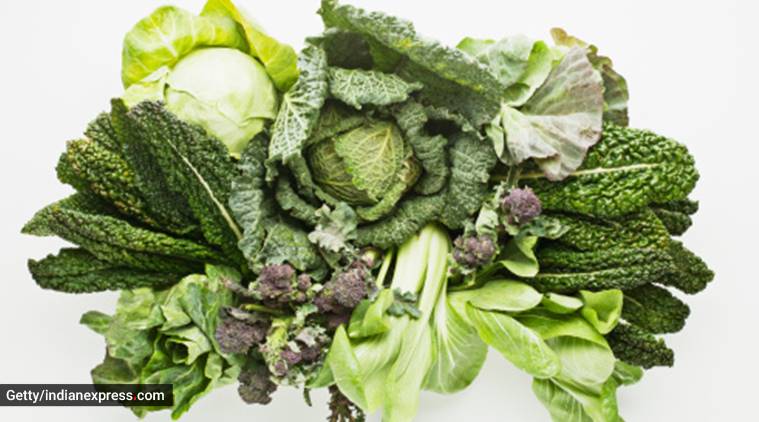By: Lifestyle Desk | New Delhi | Updated: October 3, 2020 9:16:48 am
 If you want to meet your fitness goals, start paying attention to what you eat. (Source: Getty Images/Thinkstock)
If you want to meet your fitness goals, start paying attention to what you eat. (Source: Getty Images/Thinkstock)
A recent report called India’s Diet Paradox published by Nu-Shakti, highlighted that “98 per cent agree that a nutritious diet is essential for a healthy lifestyle, however only 60 per cent of the respondents ‘rarely’ or ‘never’ make a conscious effort to add nutritive elements or additional supplements to their diet”. On the other hand, the Indian Heart Journal Volume 71, also highlights that India is home to 77 million diabetics, second highest in the world, and almost one in every three Indian adults is affected by hypertension,” says Ramya Ramachandran clinical nutritionist, lactation consultant, and diabetes educator, Chennai.
“Given the increasing awareness about healthy eating and living, backed by improved technologies and greater access to information, millions across the globe make resolutions to eat healthy. However, most resolutions either do not see the light of day or disappear somewhere along the way. The increasing awareness about health and fitness is not translating into actions. Hence the gap and the above report validates the same,” says Ramachandran.
According to the nutritionist, such resolutions mostly fail due to lack of proper planning or food strategy. “Having said that, it is important to understand that it is not just about correcting the food on our plates; we also have to correct our habits to stay healthy. So here’s a low down of some super simple tweaks you can make to your food habits and pledge for a healthier year ahead,” she adds.
Eat colourful
https://images.indianexpress.com/2020/08/1×1.png
 It’s important to add green leafy vegetables to your diet. (Source: getty images)
It’s important to add green leafy vegetables to your diet. (Source: getty images)
Vegetables are an important part of our diet, which is why we are advised to eat a lot of green and leafy vegetables. However, if you are looking for a wholesome and balanced diet that fulfills all your nutritional requirements, you need more colours on your plate. More so because green leafy vegetables are rich sources of vitamins like ascorbic acid, folic acid, etc. and rich in minerals such as iron, calcium, and phosphorus, making them a natural cache of nutrients. Likewise, red-coloured fruits and vegetables are a rich source of antioxidants that reduce the risk of hypertension, cancer, heart diseases, etc. The point being, the more the colours on your plate, the better the variety of nutrients you get. Despite all the benefits of colourful food, if your tight work schedule doesn’t allow you to lay your hands on these veggies, the next best option is to include food supplements and essentials in your food. Please note that dietary supplements cannot replace bad eating habits, but aids in preventing the damages caused by it.
Cook for yourself
Now that we have expanded the food content on our plate, let’s talk about treating the food. Inculcate a habit of cooking your own food. There’s no better way to know what’s in your food than cooking it yourself. By making it yourself, not only can you play around with different flavours and spices, but also control the amount of sugar and salt you consume.
Relish every bite slowly
Once the food is ready, how you consume it also has an impact on your health. Considering the hectic lifestyle we live, most people tend to gobble down everything on their plates; that is a very unhealthy habit. Primarily because you chew the food less, which interrupts the proper processing of the food inside your body; this could lead to health issues like obesity, diabetes, metabolic syndrome, etc. Therefore pledge to eat slowly and relish every bite because that’s how you ‘Eat right, bite by bite’.
Focus on mindful eating
Yet another essential aspect to consider as a healthy eating habit would be to eat attentively. Most of us underestimate the importance of paying attention to our food while eating. Being distracted by TVs, computers and mobile phones while eating might interfere with the digestion process as your mouth might not produce enough saliva. This, in turn, interferes with regulating your appetite and impedes the body from signaling when you’re full.
Manage your stress better
 Time to pay attention to your food. (Source: Getty/Thinkstock)
Time to pay attention to your food. (Source: Getty/Thinkstock)
The above-discussed aspects are some of the simplest ways of having a healthy eating habit. However, one must note that ‘stress eating’ is a real thing, causing major health hazards. Pledge to manage your stress better by finding better ways to blow off some steam and compose yourself. Explore reading, massages, cooking, or even going for a run, anything that helps you unwind. Find something else than food to unload your stress.
Plan your meal and cook adequately
Planning anything helps you set objectives and deciding in advance the appropriate measures. Another quick hack to healthy eating is to plan your meals in advance and cook adequate portions. This way, you wouldn’t be wasting food. Instead of grabbing junk food when you’re hungry, stock healthy foods like fruits, yogurt, nuts, and dry fruits at home; and most importantly, hydrate yourself with adequate fluids. Last but not the least, don’t go too hard on yourself over food. Drooling over that muffin? Then eat it! The point is to pay attention and not to obsess over eating right.
For more lifestyle news, follow us: Twitter: lifestyle_ie | Facebook: IE Lifestyle | Instagram: ie_lifestyle
📣 The Indian Express is now on Telegram. Click here to join our channel (@indianexpress) and stay updated with the latest headlines
For all the latest Lifestyle News, download Indian Express App.
© IE Online Media Services Pvt Ltd


